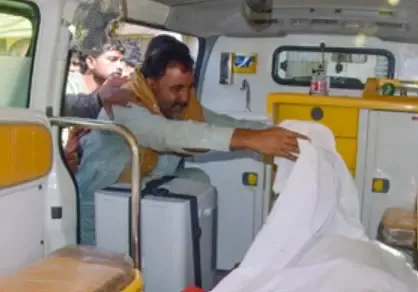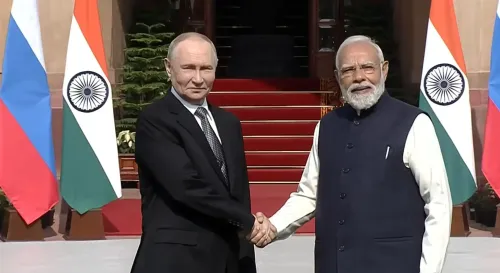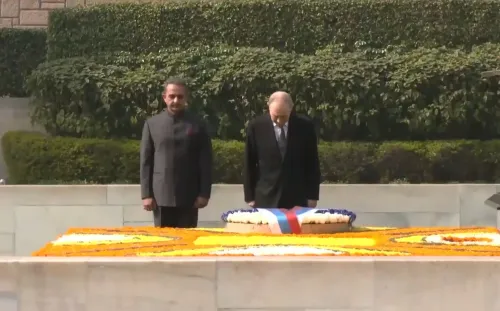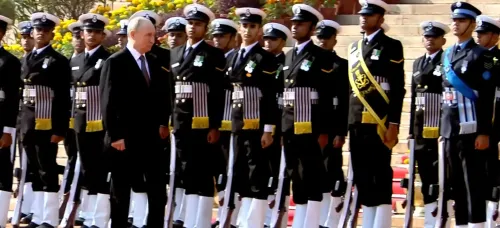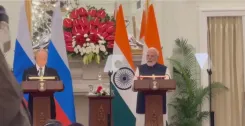Why is Qatar Urging the Creation of a Nuclear-Weapons-Free Zone in the Middle East?
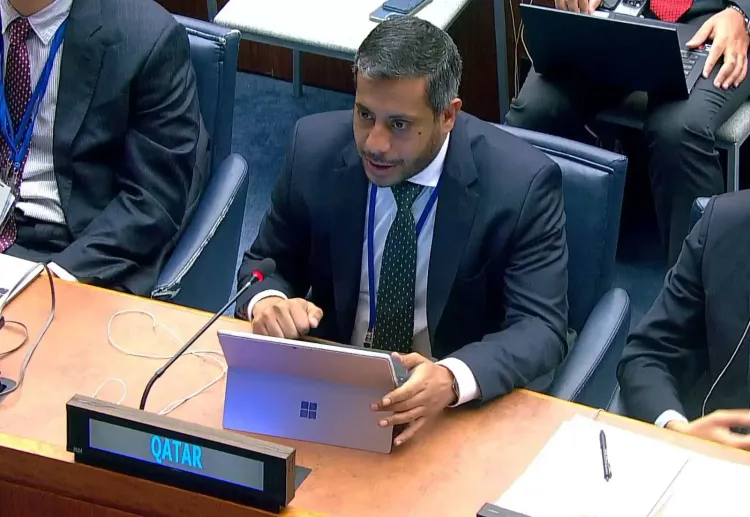
Synopsis
Key Takeaways
- Urgent need for a nuclear-weapons-free zone in the Middle East.
- International cooperation is essential for nuclear disarmament.
- Qatar supports the upcoming UN conference on nuclear weapons.
- Possession of nuclear weapons complicates armed conflicts.
- IAEA oversight is crucial for nuclear safety.
New York/Doha, Oct 18 (NationPress) Qatar has strongly emphasized that the formation of a nuclear-weapons-free zone in the Middle East is increasingly urgent in light of current regional and global security threats.
This assertion was made by Khalid Ibrahim Al Mansouri, a member of Qatar's delegation at the 80th Session of the United Nations General Assembly, during discussions on nuclear weapons at the UN Headquarters in New York, as stated by Qatar's Foreign Ministry on Saturday.
Al Mansouri pointed out that the spread of nuclear weapons poses a serious concern for the global community, significantly raising the chances of accidents and potential threats that could have devastating effects on humanity and future generations.
He cautioned that ongoing development and modernization of nuclear stockpiles, coupled with threats of their use, further escalate global tensions and jeopardize both regional and international peace and security.
Qatar highlighted that global initiatives aimed at achieving comprehensive nuclear disarmament and non-proliferation are essential for creating safe and peaceful societies. Al Mansouri noted that the adoption of the Treaty on the Prohibition of Nuclear Weapons by the UN General Assembly indicates a growing global recognition of the dangers associated with nuclear proliferation, particularly the risks connected to testing and weapon development.
He further underscored that the existence of nuclear weapons complicates ongoing armed conflicts, exacerbates regional crises, and contributes to increased global insecurity.
"In light of rising tensions arising from regional and international conflicts—as well as the growing integration of nuclear weapons into military strategies and ongoing testing of delivery systems—Qatar underscored the urgent need for regional and international consensus in the Middle East. Building positive relationships among neighbors, he said, must be prioritized to resolve disputes, enhance security, and protect civilians and critical infrastructure," the Qatar's Foreign Ministry stated.
Qatar also reaffirmed its backing for the upcoming sixth session of the United Nations Conference on the Establishment of a Middle East Free of Nuclear Weapons and Other Weapons of Mass Destruction, set for November this year.
Al Mansouri emphasized the significance of the forthcoming 2026 Review Conference of the Parties to the Treaty on the Non-Proliferation of Nuclear Weapons (NPT), scheduled from April 27 to May 22, and congratulated Vietnam on its presidency of the conference. He expressed Qatar's full support for Vietnam's initiatives and hopes for substantial and positive results from the conference.
He reiterated the necessity of fulfilling obligations arising from international agreements related to nuclear disarmament and highlighted the importance of the responsible development of peaceful nuclear energy. He called for stringent measures to prevent the cross-border leakage of radioactive materials and advocated for robust safeguards under the oversight of the International Atomic Energy Agency (IAEA) to ensure the highest standards of nuclear safety and security in an era where proliferation remains a critical issue.


